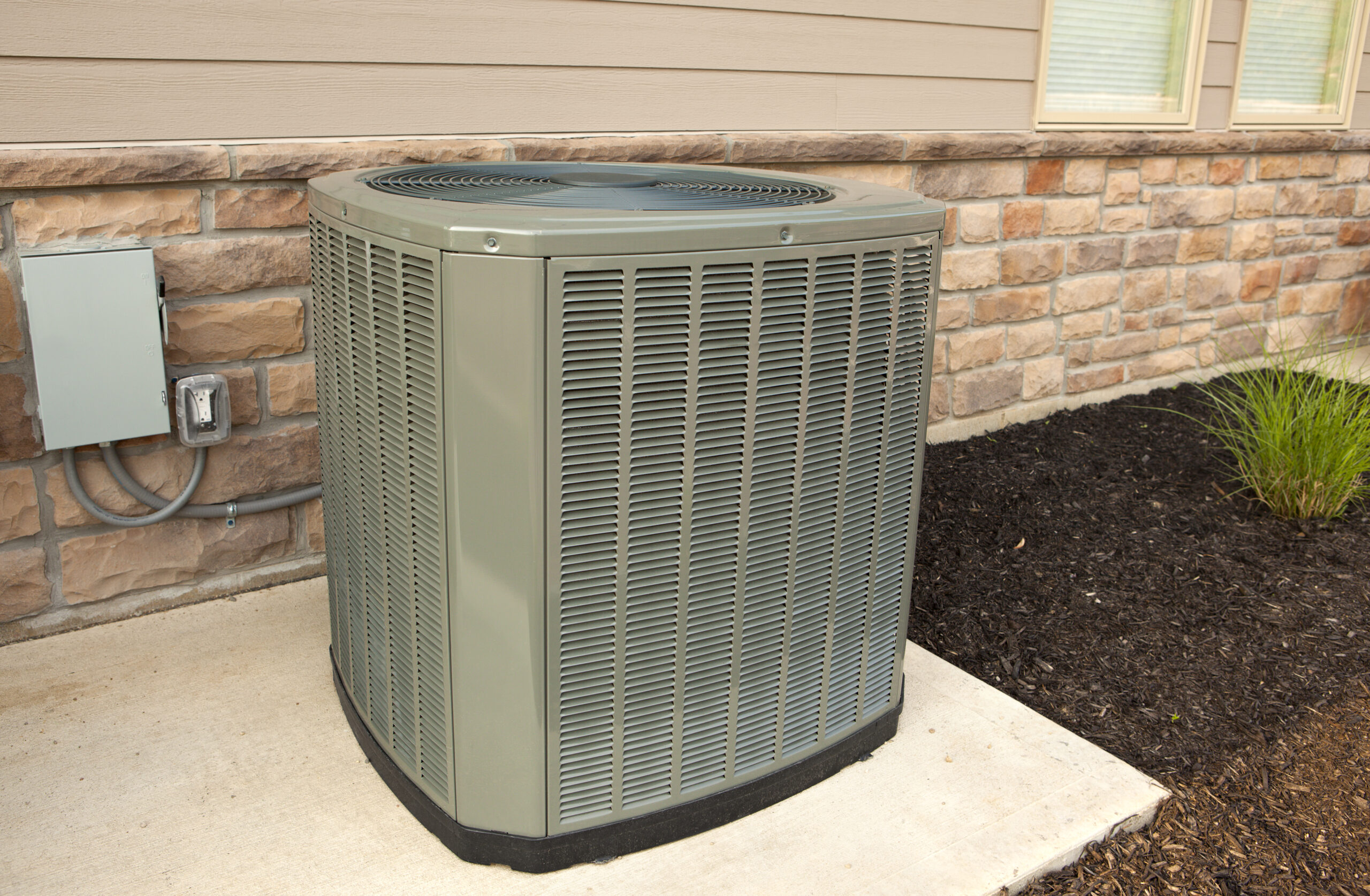
Choosing between a furnace-based heating system or a heat pump for your Columbia home can be challenging. Both a heat pump and a furnace have the same purpose, which is to keep your home warm during the winter. However, they have drastically different approaches to providing heat. In certain situations, the heat provided by a furnace is best. In others, the heat from a heat pump is superior.
What Is a Heat Pump?
A heat pump is a system that can both heat and cool your home. Unlike a furnace that uses combustion to heat your home, a heat pump transfers the heat from the outside into your home. The heat is pulled from the outdoors and is transferred to a liquid refrigerant. This refrigerant is transferred to a heat exchanger, and air is blown across the heat exchanger, pushing the heat into the home.
Many people are surprised to learn that it does not need to be hot outside for a heat pump to be able to pull heat energy from the ambient temperature. A heat pump can work in temperatures that are below freezing. However, the colder it is outside, the less efficient a heat pump is to produce heat.
What Is a Furnace?
A furnace uses forced air to heat a home or office. Unlike a heat pump that transfers heat from one place to another, a furnace uses combustion or electric heating to generate heat. The heat produced in the burner is transferred to a heat exchanger. Then, a large fan pushes air across the heat exchanger, heating it and dispersing it through the home’s ductwork to individual rooms.
Primary Differences Between Heat Pumps and Furnaces
The purpose of a heat pump and a furnace is the same. They use some of the same components, such as the blower system. However, they have significant differences.
Heat Pumps vs. Furnaces
There are differences between heat pumps and furnaces that homeowners should consider before making a selection.
Heat Pump Cost
A heat pump will run you somewhere between $3,500 and $5,000 to install. However, other factors will determine the cost, including whether your home already has ductwork, the size of the home, the complexity, and the quality of the heat pump system you purchase.
The simplest, least expensive, and most commonly used heat pumps are air-to-air heat pumps. These will pull heat from the ambient air. Unfortunately, as the temperatures drop, these less expensive models start to experience problems.
Geothermal heat pumps pull heat from the ground. These take advantage of the fact that there is a constant 50-degree Fahrenheit temperature difference between the surface temperature and the temperature under the ground. Geothermal heat pumps are a lot more expensive than air-to-air models.
Furnace Cost
On average, you should expect to pay between $4,000 and $6,000 for a gas or electric furnace. Natural gas is more efficient than electricity. However, if your home does not already have a natural gas line, there is an expense in having one installed.
Heat Pump Efficiency
A heat pump is unbelievably efficient. They require a small amount of electricity to function, allowing them to transfer up to four times as much heat energy as the electric energy used to run the unit. The colder the temperatures are outside, the less efficient a heat pump becomes because it has to work harder to transfer enough heat to warm a room. Heat pumps become less energy efficient than a furnace at a certain temperature point, usually around -10 degrees Fahrenheit.
Furnace Efficiency
Furnaces use combustion to generate heat. Natural gas is a very effective heating option. However, it is way less efficient than a heat pump under normal conditions. A gas furnace is between 90% and 96% efficient. That’s the amount of heat produced through combustion that will be transferred into the home. An electric furnace, on the other hand, is 100% efficient. All of the heat created in the electric coils will be used to heat the home. The fact that a furnace creates its heat makes it a superior option in areas where temperatures during the winter are consistently below zero.
Furnace Durability
A gas furnace, as long as it’s properly maintained, will have a longer lifespan than a heat pump. Furnaces with proper maintenance can last for over 20 years. The heat elements of a gas furnace are only going to be used during the late fall, winter, and early spring months. This means that a furnace’s maintenance requirements are much lower than those of a heat pump.
Heat Pump Durability
A heat pump, similar to an air conditioner, should last around 15 years, having a shorter lifespan than a furnace. Since heat pumps can be used to both heat and cool the house, they will likely run all year round. Heat pumps may require more maintenance.
Heat Pump Appearance
Heat pumps are efficient and versatile, but they are not aesthetically pleasing. With a heat pump, you usually have a bulky standalone unit outside of your house. In the case of mini-splits, there is a large unit hanging on the side of the home on top of the home. These can detract from the aesthetics of the home.
Furnace Appearance
Unlike a heat pump, a furnace is unobtrusive. They are installed in the attic or basement, so they are out of sight and out of mind. This can be a factor to consider, especially if you live in a smaller home or have a smaller yard where you do not want to use up valuable real estate.
Heat Pump and Furnace Maintenance
A heat pump and furnace will require annual professional inspections and maintenance if you want them to work their best. Both systems also require homeowners to change filters and keep the area around the unit clean.
Heat Pump Versus Furnace: Which Is Right for Your Home?
Choosing between a heat pump and a furnace must be done on a case-by-case basis. In Columbia, Maryland temperatures can drop to around 25 degrees Fahrenheit during the winter. While this is still well within the range of a heat pump, it will take a heat pump a lot longer to heat the home at these temperatures than it will a furnace. On the flip side, a heat pump can provide an energy-efficient way to maintain comfortable temperatures in the home and can be used to keep the home cool during the summer.
Bringing Comfort Straight to Your Door
At Beltway Air Conditioning & Heating, we proudly carry the industry’s most dependable and energy-efficient HVAC products. We are an A+ Better Business Bureau-accredited HVAC company that offers customer satisfaction. We are locally owned and operated with licensed and trained technicians.
Our services include HVAC installation, repair, and maintenance. We offer oil-to-gas furnace conversion, ductless mini-split installation, indoor air quality, duct cleaning, and ductwork installation. Contact Beltway Air Conditioning & Heating today for more information.


